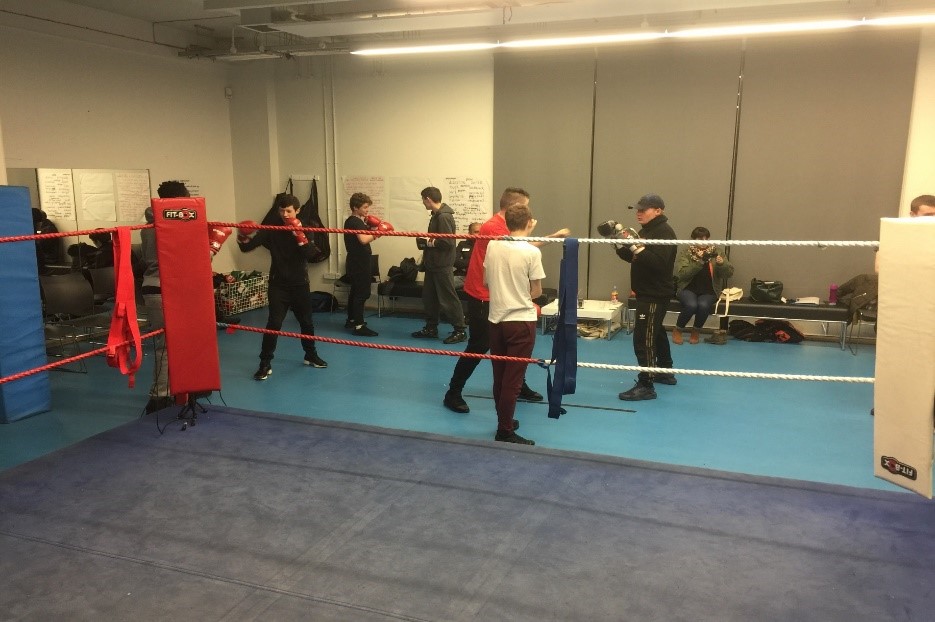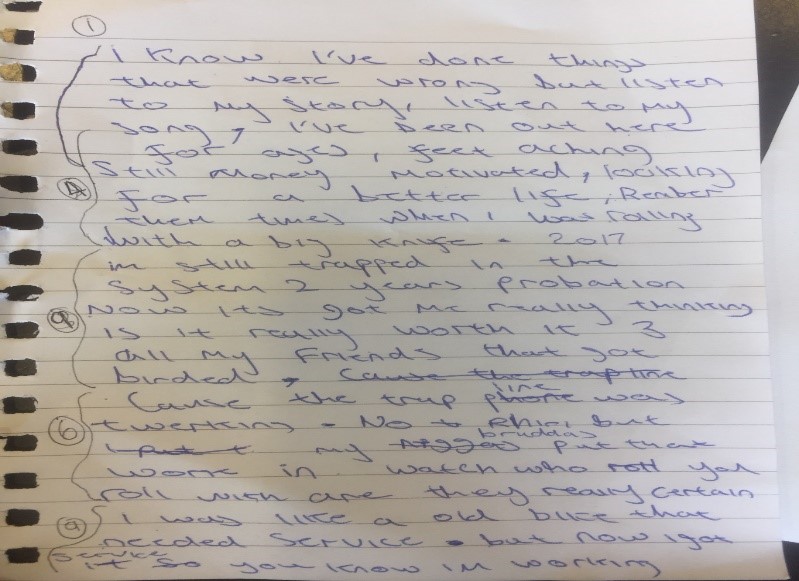- Study
- International
- Business and employers
- Research
- About us
Since 2015, as part of the Greater Manchester Youth Justice University Partnership (GMYJUP), MCYS has been working on a pioneering research project with each of the 10 Greater Manchester Youth Justice Services. This has resulted in the co-production, with young people, of a framework of principles termed Participatory Youth Practice (PYP).

PYP workshop
By way of context, youth justice systems create environments whereby youth justice is done to young people rather than with young people. They tend to be built on populism, punitiveness and political rhetoric. Yet, in theory at least, young people in conflict with the law have the legal right to have their opinions taken into account, and are entitled to be able to contribute to a criminal justice system’s response to their own behaviour (see UNCRC, 2007; 2008). However, systemic neglect of young people’s views and participation pervades contemporary youth justice practices, typically leaving those in conflict with the justice system largely voiceless and powerless in key decision-making processes (Case, 2006). We are of the opinion that the continued lack of children and young people’s participation in current youth justice practice highlights the need for the development of a new model of practice that is not solely reliant on adult-directed research. The creation of the PYP framework is a formative step in this process.
Working with justice-involved young people across the Greater Manchester region, we ran a number of participatory workshops utilising activities that they chose, including, boxing, grime lyric writing and urban art. The workshops provided an opportunity to work closely with the young people and explore their experiences of the youth justice system, and how they felt it could better meet their needs.
The discussions in the workshops raised a wide range of issues, including for example:
“They really should start listening to you, . . . but they just go through what they’ve got to do. That’s their procedure. That’s their job.” (Ant[1], aged 15).
“They’ve got to understand that there are . . . reasons why you do shit.” (Jay, aged 16).
“People say . . . that you can be whatever the fuck you want. But . . . you can’t just do whatever the fuck you want. That’s a lie . . . You need money behind you and stuff like that. . . . It’s just how it is.” (Ste, aged 17)
(All names are pseudonyms).
We went on to analyse the findings from the workshops with a number of the children and themes began to emerge which became the formulating principles on which PYP is based. These are as follows:
The final stage of the project involved the dissemination of the PYP framework. We asked the young people how they wanted to do this. They agreed that they wanted to create some grime lyrics. Working with the original facilitator from the grime lyric writing workshop, they created a set of lyrics that explained the principles of the PYP framework. These were then set to a film, to be used as an explainer for youth justice practitioners. A link to the film can be found here.

A workshop explaining the PYP framework to regional youth justice practitioners was then delivered by the research team. Alongside this, each of the 10 youth justice services nominated a ‘Participation Champion’, whose role it is to support the implementation of the PYP framework in practice. Furthermore, a suite of resources and guides on how to embed PYP principles in practice was created and over 250 youth justice practitioners have benefitted from PYP training. Training resources were made available for download on the project website and can be accessed here.
The PYP principles are grounded in children and young people’s rights and an ethos of meaningful participation. It is our intention that the principles of PYP will enable children and young people to get a sense that they, not only have control over their ‘treatment’ within the justice system, but that they also hold important expertise that can usefully inform youth justice policy and practice. Through our continued work with the Greater Manchester teams, we are seeing some concrete examples of PYP being embedded into practice. For example, when overseeing young people’s cases, one team has replaced a set of questions addressing risk with the PYP principles, while another has integrated the principles into their supervision sessions with young people. Through the creation of ‘working groups’ with young people, one of the teams has even facilitated the participation of young people in decision-making about the development and delivery of new initiatives and programmes. Paul Axon, Director of Targeted Services, Positive Oldham Steps, explained: “Because of the work we’ve done around participation in youth justice, young people are being assessed in a different way, worked with in a different way, and that is a direct result of this project”.
MCYS’s focus on youth participation and the use of PYP principles in justice settings has created a model of working that has extended beyond the initial project described above. For instance, our ‘Getting out for Good’ project, funded by Comic Relief and working in partnership with Oldham’s youth justice team, involved 90 young women (aged 14-24) identified as being at risk of serious gang-related youth violence, sexual exploitation and abuse. With a focus on youth-led methods including boxing, youth theatre and filmmaking, the young women helped their peers to reflect on pathways into and out of risky behaviours, devising their own solutions through up-skilling and resilience building. The project has had positive outcomes on the young women’s mental health and has steered a wider UK advocacy strategy for young women at risk of sexual exploitation.
The MCYS research projects and strategic interventions that employ PYP allow young people to participate in decisions about their lives, enabling them to have their rights respected and giving them chance to make a positive contribution. Young people have reflected on their experiences of the embedding of PYP in practice and these reflections include “young people like us, don’t usually get these sort of opportunities”, and “no one ever really bothers asking us what we think”.
We contend that the overall ethos of the PYP framework grounded in co-production and meaningful participation – can contribute to the advancement of youth justice systems built on the notion of respecting and acknowledging children and young people’s rights and enabling them to contribute to decision-making processes.
For a full description of the original project see: Smithson, H., Gray, P. and Jones, A. (2020) “They Really Should Start Listening to You”: The Benefits and Challenges of Co-Producing a Participatory Framework of Youth Justice Practice’. Youth Justice. doi.org/10.1177/1473225420941598